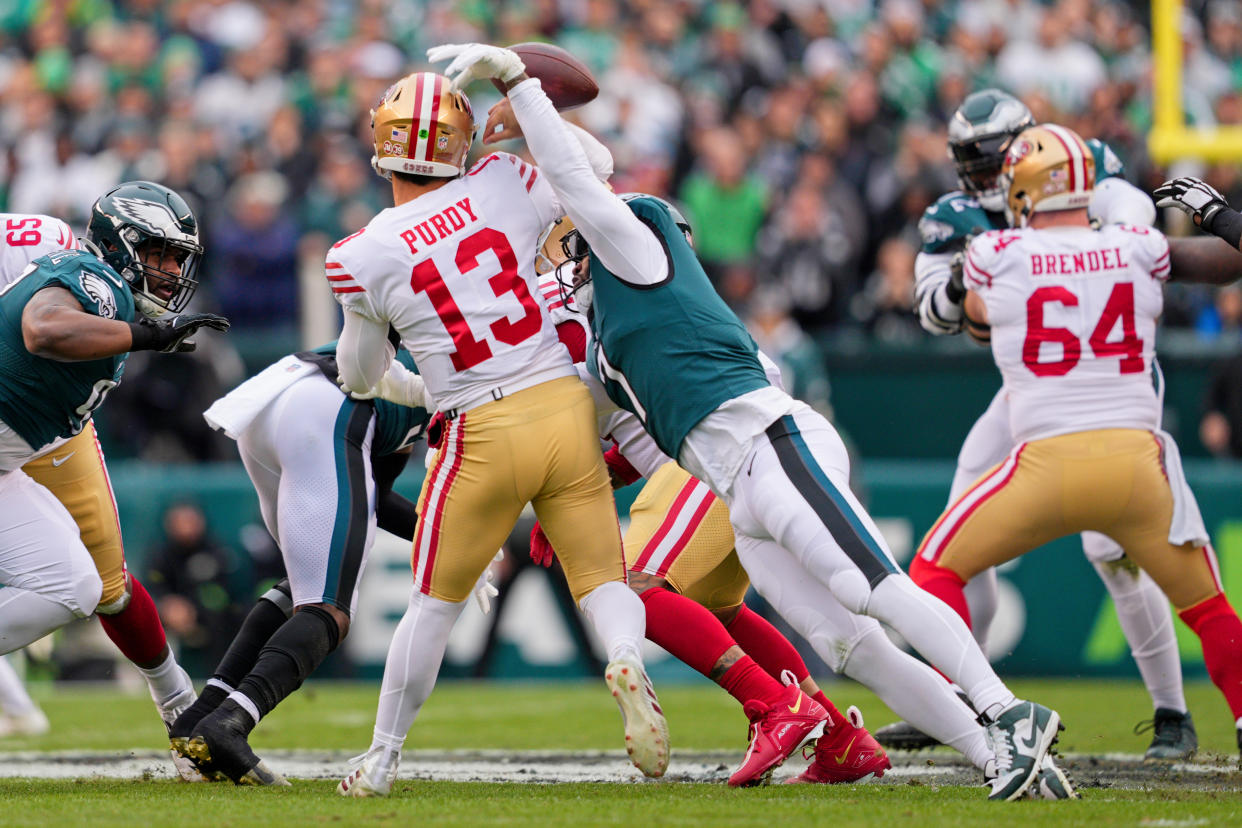NFL approves rule change allowing teams to roster 'emergency' QB after 49ers' NFC title game dilemma
EAGAN, Minn. — Once again, a high-profile moment was sufficient impetus to spur change in the NFL rulebook.
Fans who tuned into the NFC championship game in January wondered how the San Francisco 49ers would proceed after quarterback Brock Purdy tore the UCL in his throwing elbow and backup Josh Johnson was ruled out with a concussion.
With an NFL bylaw amendment Monday afternoon at the May owners' meetings, the next team to face this dilemma will have more quarterback optionality.
NFL teams can now officially designate an inactive, emergency third quarterback who will play if the team’s two active quarterbacks aren’t able to.
The NFL approved a bylaw to allow teams to dress a third "emergency" QB on gamedays. If two active QBs are injured or disqualified from game & unable to participate, QB3 can come up.
Notable after 49ers faced challenge in NFC Championship. pic.twitter.com/JKssu3WMYF— Jori Epstein (@JoriEpstein) May 22, 2023
The third quarterback will be inactive unless and until the two active quarterbacks are injured or disqualified and unable to participate in the game, per bylaw language.
And the quarterback must be removed from the game if one of the two active quarterbacks is able to return. Continuing to play at another position is not permitted.
The criteria are specific and unlikely to trigger with much frequency. Bylaw language specifies that a head coach cannot use this leniency due to performance or conduct.
The emergency quarterback will be designated when teams file active/inactive lists 90 minutes before each game.
Cowboys team owner Jerry Jones told Yahoo Sports in February that the league “cannot ignore when we have a team that has gotten short at quarterback.”
“That’s the best way to initiate and the best way to make decisions is when you have examples at, I would say, very sensitive times,” Jones said of changing rules that have impacted playoff outcomes. “And boy, we don’t want teams without quarterbacks in these games where 50 million people are watching.”
Roster rule changes became commonplace during the height of the COVID-19 pandemic, altering practice squad and active gameday criteria alike.
From 1991 to 2010, the NFL had required teams to designate on their gameday roster an emergency third quarterback who, if they entered before the fourth quarter, would deem the team’s first two quarterbacks ineligible to play the rest of the game. The league subsequently did away with that rule and instead expanded gameday rosters from 45 players to 46. Teams were no longer required to provide tertiary depth at quarterback, instead free to choose whether to continue to carry three quarterbacks, or to devote that spot to depth at another perhaps injury-laden position such as linemen.

With Monday’s change, teams are not required to designate a third quarterback but are able to do so without consequence to their other roster spots.
Teams cannot designate an emergency inactive quarterback if they already carry three quarterbacks on their gameday active list.
